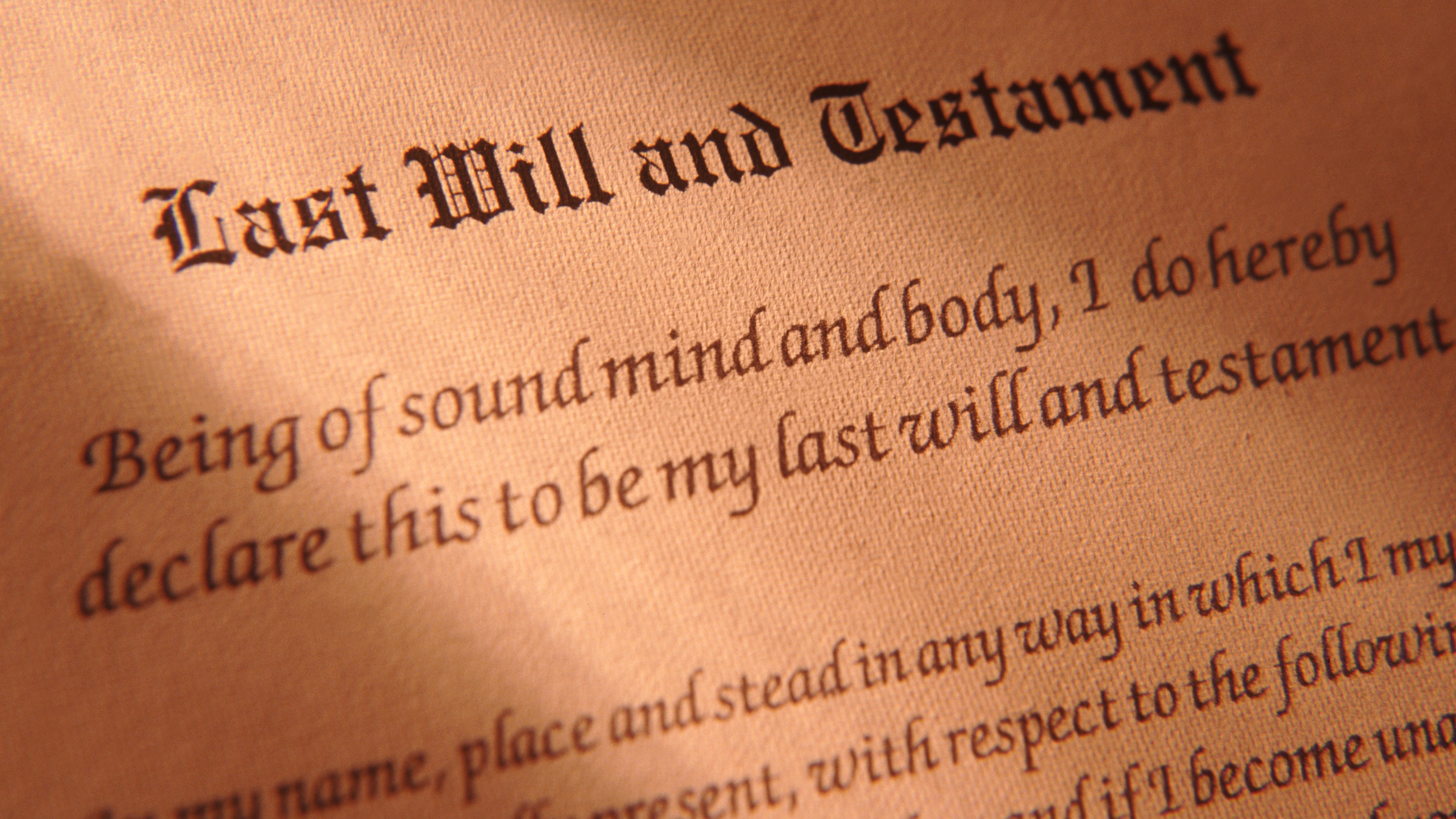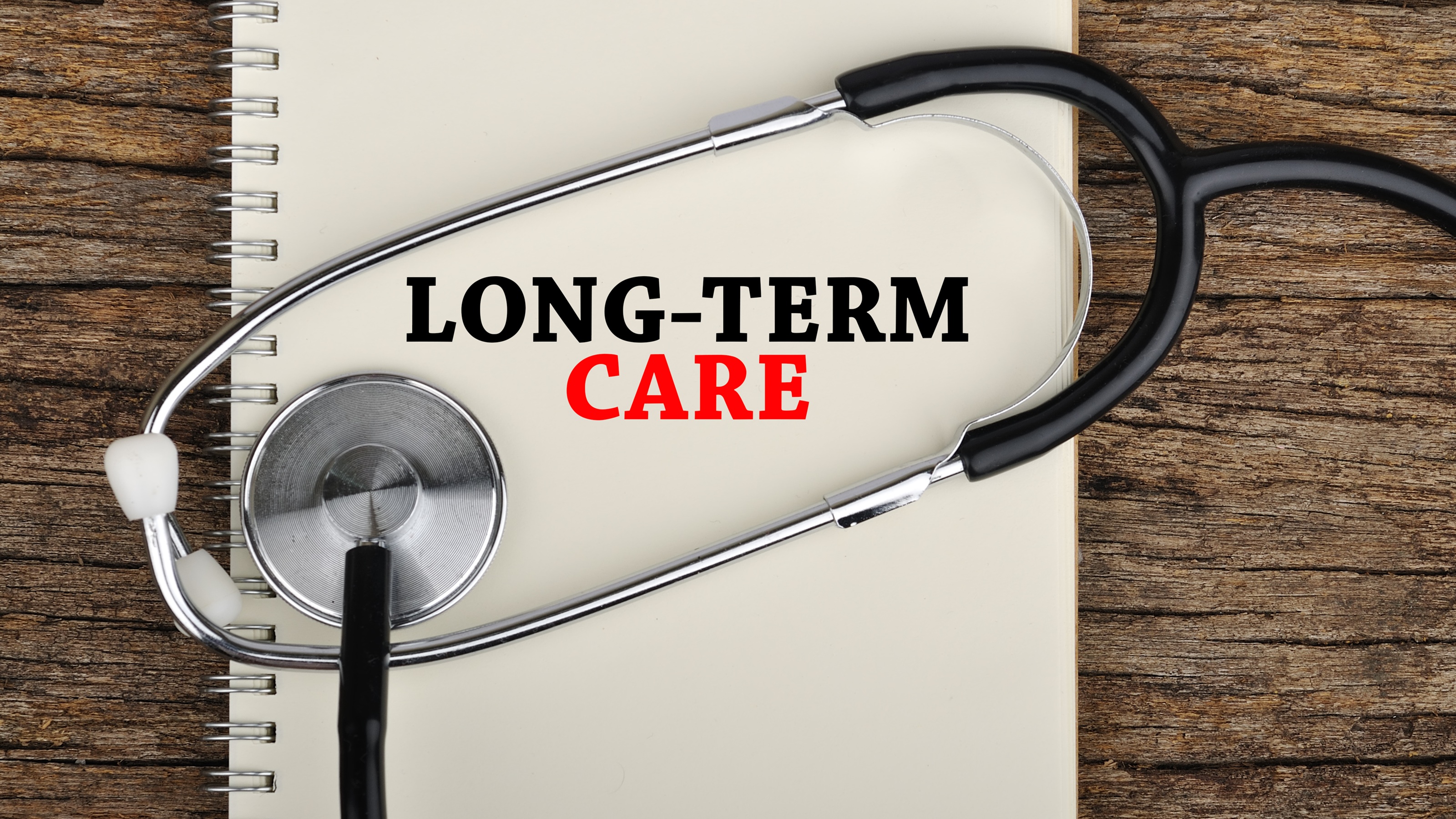What Happens if You Die Without a Will?
An elder law attorney explains the importance of a last will and testament, beneficiary designations and other critical estate planning issues.


As an elder law attorney, I am continuingly asked, “What happens if I die without a will?” The most accurate answer is, “I don’t have a clue,” and sadly, you probably don’t either.
When you pass away, you want your estate passed down to the beneficiaries you choose. But it’s not that simple. There are certain rules and procedures that are already being applied to your assets whether you realize it or not.
The first rule is that a last will and testament controls assets that are solely in your name. This can be especially important when it comes to blended families. For example, if a parent has a will leaving everything to his children from a previous marriage but has named his current wife as a joint owner or beneficiary over the house and financial accounts, then the will essentially becomes obsolete. This is because joint ownership and beneficiary designations supersede the will.

Sign up for Kiplinger’s Free E-Newsletters
Profit and prosper with the best of expert advice on investing, taxes, retirement, personal finance and more - straight to your e-mail.
Profit and prosper with the best of expert advice - straight to your e-mail.
Here is an example: A married couple have recently divorced, but they share a child. If the father signs a new will leaving everything to the child but names a sibling as a beneficiary of his life insurance policy, once he dies, that money will go to the sibling, not the child.
A law to keep in mind
Another rule that’s crucial to keep in mind is the law of intestate succession. That means if someone dies without proper planning, their estate will automatically go to their next of kin. The law is state-specific, but generally follows the family tree. Your spouse will get most of it, and the rest will be passed down to your children.
This could be detrimental depending on the individual’s situation. Let’s say you and your spouse both die without a will in place. According to the law, your estate would automatically go to your children as long as they’re over the age of 18. For some families, that may not be the best option. Having a will in place allows you to place restrictions on how your children receive their inheritance. Maybe you don’t want them to have access to their inheritance until they’re older, or maybe you want them to use it for something specific, like education. You must clearly state that in your will. Otherwise, they’ll be entitled to use their inheritance however they want.
If you understand the rules, you can ensure that you create a plan that passes your estate down to the beneficiaries that you want and not unintended beneficiaries. So long as you have a will, you have the power to control how and when your beneficiaries receive their inheritance and who will be in charge of administering your estate. Without a will in place, those decisions will be determined by the law.
Why a complete estate plan is so important
As important as it is, having a last will and testament is only a part of the estate planning process. If you rely on just a will, your estate will have to go through probate, which can take months or even years, depending on the size and complexity of your situation. In addition, a will has nothing to do with appointing someone to make your medical and financial decisions if you become unable to do so. This is why it is so important to have a complete estate plan in place.
A good estate plan has the documents needed for any situation that might arise. This includes designating a medical power of attorney, a financial power of attorney, a revocable trust agreement that allows you to pass your estate down to your beneficiaries without the need of probate court and, finally, a last will and testament.
With a complete estate plan, you have the power to protect your estate while you’re alive, ensuring that your wishes will be followed once you’re gone.
Related Content
- 14 Rapid-Fire Estate Planning Tips
- 10 Things You Should Know About Estate Planning
- Common Estate Planning Mistakes
- Estate Plan Check-Ups: Don’t Just Set It and Forget It
- 2024 Uncertainty Highlights Need for Estate Plan Flexibility
Profit and prosper with the best of Kiplinger's advice on investing, taxes, retirement, personal finance and much more. Delivered daily. Enter your email in the box and click Sign Me Up.

Patrick M. Simasko is an elder law attorney and financial adviser at Simasko Law and Simasko Financial, specializing in elder law and wealth preservation. He’s also an Elder Law Professor at Michigan State University School of Law. His self-effacing character, style and ability have garnered him prominence and recognition throughout the metro Detroit area as well as the entire state.
-
 Stock Market Today: Markets Chop Up More Trump Threats
Stock Market Today: Markets Chop Up More Trump ThreatsStocks are grinding to new highs on light summer volume, and bitcoin is only getting bigger.
-
 If You'd Put $1,000 Into Procter & Gamble Stock 20 Years Ago, Here's What You'd Have Today
If You'd Put $1,000 Into Procter & Gamble Stock 20 Years Ago, Here's What You'd Have TodayProcter & Gamble stock is a dependable dividend grower, but a disappointing long-term holding.
-
 Financial Pros Provide a Beginner's Guide to Building Wealth in 10 Years
Financial Pros Provide a Beginner's Guide to Building Wealth in 10 YearsBuilding wealth over 10 years requires understanding your current financial situation, budgeting effectively, eliminating high-interest debt and increasing both your income and financial literacy.
-
 Five Mistakes to Avoid in Your First Year of Retirement
Five Mistakes to Avoid in Your First Year of RetirementRetirement brings the freedom to choose how to spend your money and time. But choices made in the initial rush of excitement could create problems in future.
-
 I'm an Investing Expert: This Is How You Can Invest Like Warren Buffett
I'm an Investing Expert: This Is How You Can Invest Like Warren BuffettBuffett just invested $15 billion in oil and gas, and you can leverage the same strategy in your IRA to potentially generate 8% to 12% quarterly cash flow while taking advantage of tax benefits that are unavailable in any other investment class.
-
 Integrity, Generosity and Wealth: A Faith-Based Approach to Business
Integrity, Generosity and Wealth: A Faith-Based Approach to BusinessEntrepreneurs who align their business and financial decisions with the biblical principles of integrity, generosity and helping others can realize impactful and fulfilling success.
-
 How Much Income Can You Get From an Annuity? An Annuities Expert Gets Specific
How Much Income Can You Get From an Annuity? An Annuities Expert Gets SpecificHere's a detailed look at income annuities and the factors that determine your payout now and in the future.
-
 Your Paycheck Stops in Retirement, But Your Life Doesn't: An Expert Guide to Planning for a Confident Future
Your Paycheck Stops in Retirement, But Your Life Doesn't: An Expert Guide to Planning for a Confident FutureSocial Security will replace only about 40% of your salary, on average. A solid financial plan will help you plug the gap so you can rest easy in retirement.
-
 Are You Jeopardizing Your Future to Help Your Adult Kids? An Expert Guide for How to Not Do That
Are You Jeopardizing Your Future to Help Your Adult Kids? An Expert Guide for How to Not Do ThatIf your adult child needs financial help, of course you want to provide it, but crafting a plan that also protects your financial and emotional well-being is vital.
-
 I'm a Financial Planner: Here Are Some Long-Term Care Insurance Tips for Every Age
I'm a Financial Planner: Here Are Some Long-Term Care Insurance Tips for Every AgeStrategies include adding riders to life insurance for younger individuals and considering hybrid or traditional long-term care policies for those in their mid-50s and 60s.